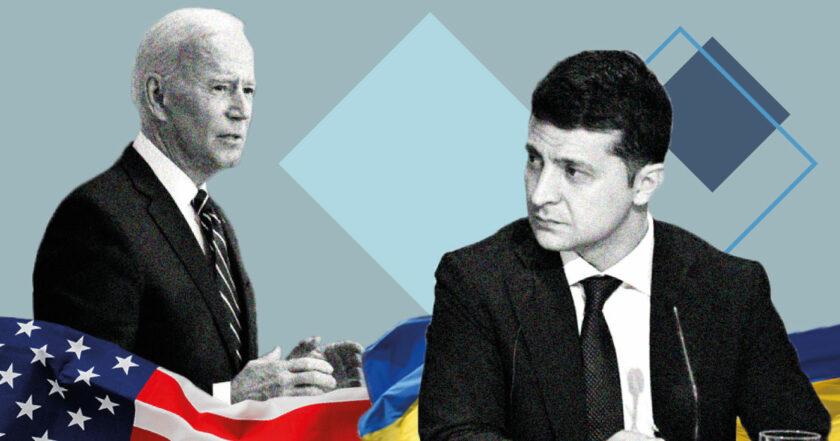Results of the bilateral meeting between Biden and Zelensky - American political consultant, lawyer Yuri Vanetik

Photo: Rubryka
One week has passed since the bilateral meeting of the presidents of the United States and Ukraine. The meeting of the two heads of state generated significant press coverage and debate about the efficacy of the long anticipated talks: news in Ukraine, Europe and Russia were filled with information from multiple sources. From the outside perspective, President Zelenksy's visit was not much different from what Americans expected: the protocol was followed, a press conference was held, Zelensky made a public speech at Stanford University and held meetings with business leaders in California. The public statements, the signed documents on the strategic partnership and the communiqué in general confirmed everything that Washington had said and done for Kyiv for many years.
Behind the scenes, there were at least two important details that are worth bringing up. The first is related to Zelensky's long preparations for the visit and the elaboration of a proposal to Biden for effective support for Ukraine in the fight against the external aggressor (Russia backed separatists) and the instability of business and government institutions. The second less public issue directly correlates with the first: the image and capital losses of the United States (the weakening of Washington's ties with a number of regions under the previous administration continued with tactical miscalculations and losses in Kabul). The two concerns may have worked well for Ukraine, which has become even more important in American eyes (not only from a moral imperative, but also by way of pragmatic foreign policy).
Zelensky's next steps promise to be decisive. From my sources, I know about the plans of the President of Ukraine and the provision of conditional carte blanche from President Biden. Ukraine will soon embark on systemic legal scrutiny of its oligarch and quasi-oligarch class. These groups generally remain a source of corruption and economic stagnation: market liberalization will be accompanied by the return of control over a strategically important industry concentrated in the hands of a small number of people (the world practice of forced market buybacks). Those who cooperate with the new administration's agenda will gain first mover advantages, not unlike in the early days of Saakashvili's administration in Georgia.
Based on my information, the U.S. has encouraged these more aggressive steps in rooting out corrupt systems rather than focusing on one off instances of egregious behavior which has not led to anticipated deterrence of criminal graft. Ukraine will also be focusing on Energy resources, the ability to transport the necessary resources through Poland (from the United States), the development of their own deposits and the achievement of energy independence. This is an important issue for Ukraine, given its actual unresolved conflict with Russia and the need to maintain independent transit routes.
We may soon see an attempt to forget the Minsk process and the emergence of U.S. representatives in a new negotiating format. The main point here is that Washington, as expected, welcomes such an initiative and recognizes the unfair systematic actions of Russian pressure on Ukraine.
In the field of defense, the United States also has not abandoned its commitment: the surveillance of borders, the latest defense weapons, equipment and more. Some companies plan to develop joint weapons, aviation and electronic systems. The location of production facilities in Ukraine and the periodic deployment of the U.S. military to demonstrate its presence in Russia are being coordinated.
After completing the internal fixes of the economy, President Biden does not mind announcing Marshall's new plan to make the leading sectors of the economy engage at full capacity. Private sector loans and investments are a separate topic; but today Americans are more ready than ever to invest in such a promising economy in the heart of Europe. The Ukrainian infrastructure provides U.S. with an opportunity to use it for the rotation of U.S. troops. Today, Ukraine has a chance to become a new gateway for America to the Middle East.
The most interesting development for me was hearing about the possibility of setting up a military enterprise with American capital in Ukraine. A decision on this issue has not yet been made, but it has a future, given the recent actions taken by Russia and Belarus.
An agreement has been reached, and very soon you will see significant changes that Zelensky will dare to launch in his country. I am confident that America will continue to support Kyiv, as long as Ukraine holds up its end of the political bargain. Ukraine needs American support now more than ever.

















































